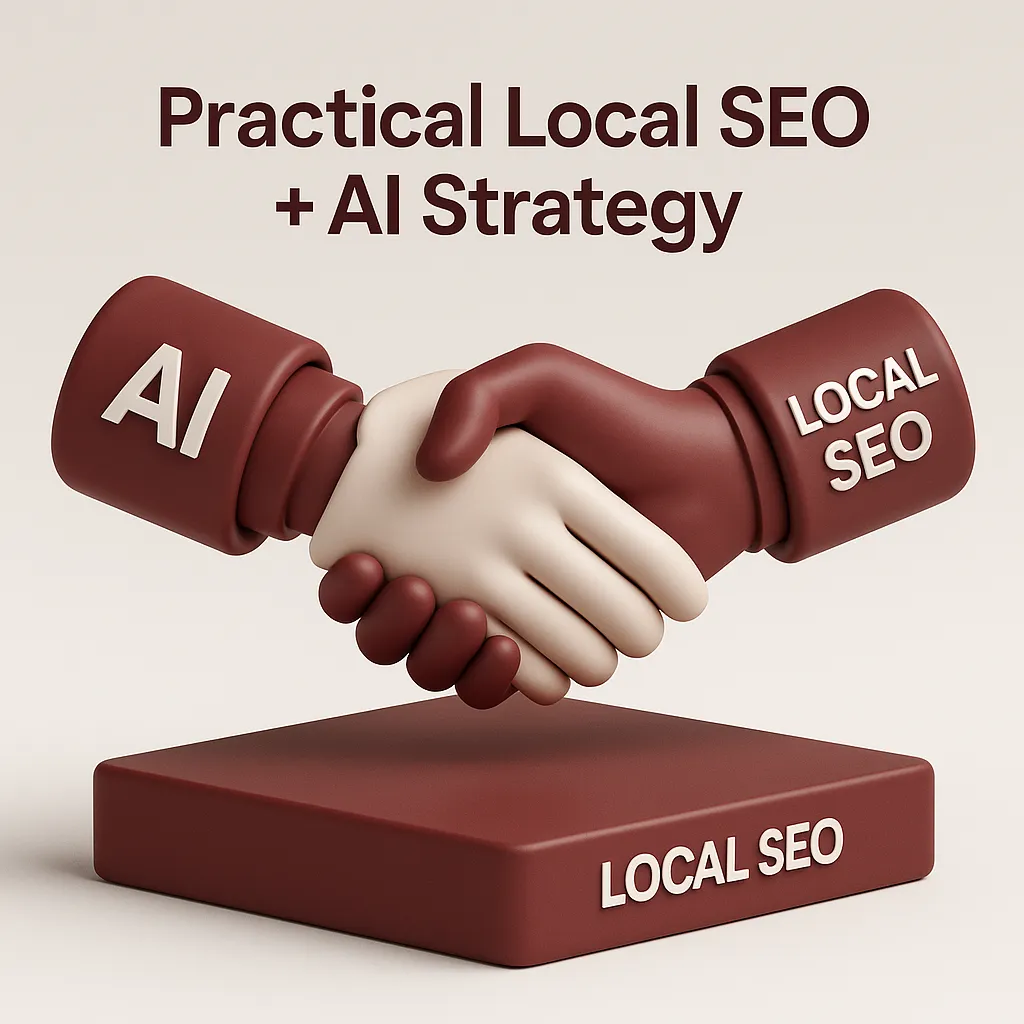Crafting Content Google Trusts (with AI’s Help)
In a world where AI tools can generate thousands of words in seconds, content marketers face a new challenge: how to stay relevant when machines write faster than humans blink. However, speed by itself won’t put your page in the top search results. This is where E-E-A-T: Experience, Expertise, Authoritativeness, and Trustworthiness comes into play. Creating content is no longer enough; you also need to demonstrate that the author is someone who knows their stuff.
According to Nielsen research, 85% of consumers seek trusted, expert content like third-party reviews before buying, proving that credibility directly drives decisions.
The future of SEO now lies at the junction of smart automation and credible authorship.
What Is E‑E‑A‑T and Why AI Cares
Google’s Search Quality Evaluators use the E-E-A-T framework, which stands for Experience, Expertise, Authoritativeness, and Trustworthiness, to evaluate the quality of content, especially in delicate niches like legal, finance, and health. Google changed E-A-T to E-E-A-T in December 2022, adding “Experience” to highlight first-hand knowledge as a ranking signal. Although E‑E‑A‑T is not a direct algorithmic factor, it has a significant impact on the prioritization and display of content by AI-powered systems such as Google’s Search Generative Experience (SGE).
Google’s documentation states that E‑E‑A‑T helps machine learning models surface content that’s not only accurate but also credible and helpful.
How E‑E‑A‑T Shapes AI-Driven Search Results
E-E-A-T has evolved into a silent algorithmic backbone as search moves beyond blue links to AI-powered responses and snippets. AI tools such as Google’s Search Generative Experience (SGE) and ChatGPT’s browsing plugin evaluate the content’s depth of real-world experience, language clarity, and source credibility in addition to keywords.
AI models are trained on massive datasets that reward content structured like authoritative publications, with references, credentials, and original insight. For example, Google’s AI Overview results often cite government, medical, and expert-backed domains because their trust signals align with E‑E‑A‑T.
So, in the age of AI, it’s not just what you say; it’s who’s saying it, how, and why it matters.
Common Pitfalls of AI‑Only Content
So, while AI tools are impressive at generating fast content, depending only on them can weaken the credibility and voice of your brand. AI produces copy that may sound robotic, repetitious, or even misleading because it lacks context, originality, and emotional nuance.
Key Pitfalls:
- Lack of Personal Insight: AI can’t share real-world experiences, which E‑E‑A‑T now prioritizes.
- Shallow Research: AI may pull outdated or generalized information from the web.
- No Author Credibility: Content lacks named, credentialed authors or expert review.
- Overused Phrases: AI-generated text often includes clichés or vague language.
- Fails to Reflect Brand Voice: Content feels generic or misaligned with your tone and audience.
How to Write Content That Meets E‑E‑A‑T & AI Standards
Over 80% of enterprises will adopt generative AI tools or applications by 2026, according to Gartner.
Bulk blogging, meta-tweaking, and keyword stuffing were once all part of creating content for search engines. However, quality now outweighs quantity due to AI curating content in real-time, and E‑E‑A‑T is the lens through which AI decides what to showcase. Your content must be written or reviewed by credible voices, contain structured, trustworthy information, and reflect genuine experience to stand out in Google’s AI Overviews or AI-generated responses.
Here’s how to align your E-E-A-T AI seo content:
- Build Author Profiles & Credentials: List author bios with qualifications, awards, or relevant experience.
- Cite Trusted Sources & External References: Link out to studies, institutions, or experts as this supports your argument and feeds AI models with context.
- Use Structured Data & Schema Markup: Implement FAQ, How To, Author, and Article schema to help AI enhance your content with clarity. According to Milestone Research, FAQ-rich results boast an 87% CTR.
- Keep Language Clear and Helpful: AI prioritizes content that solves problems quickly. Use short paragraphs, bullet lists, and direct language.
- Maintain Updated, Fact-Checked Content: Outdated info kills trust. Update posts regularly to reflect new standards, laws, or industry practices.
AI’s Role as a Co‑Pilot, Not a Creator
When guided by a human with strategy and subject knowledge, AI can streamline content production while preserving the expertise and empathy needed to build trust.
AI as a Co‑Pilot:
- Speed Up Drafting: Generate outlines, FAQs, or first drafts to save time.
- Content Repurposing: Turn blog posts into reels, tweets, or summaries.
- Language Refinement: Polish grammar, structure, and readability.
- Inspiration Generator: Generate new ideas or content angles for campaigns.
Think of AI as a tool that helps execute your vision faster, not replace it.
Measuring Success in the AI Era
Traditional metrics like pageviews and keyword rankings must be combined with deeper performance signals because AI is changing the way that content is found.
Metrics That Matter:
- Inclusion in AI Overviews: Is your content being referenced by tools like SGE?
- Time on Page & Scroll Depth: Is your audience genuinely engaging with your content?
- Citation in External Tools or Blogs: Are others (including AI) referencing your expertise?
- Passage Ranking Performance: Are specific parts of your content ranking independently?
- Brand Mentions & Domain Trust: Are you building recognition beyond just rankings?
Conclusion: The Future of Content Lies in the Right Balance
As AI continues to evolve, the brands that will thrive are those that combine the efficiency of automation with the depth of human experience. Writing content that appeals to both search engines and readers requires incorporating E‑E‑A‑T into all of your published material, including blog posts, service pages, and product descriptions. Although AI can speed up the process, human insight is still necessary for strategy, narrative, and trust.
At Oddtusk, we specialize in building future-ready content systems that speak to Google’s AI and your audience. From brand-led SEO to editorial strategies rooted in credibility, we don’t just keep up with trends, we shape them.
Ready to create content that ranks, resonates, and endures? Let’s craft smarter stories together.






